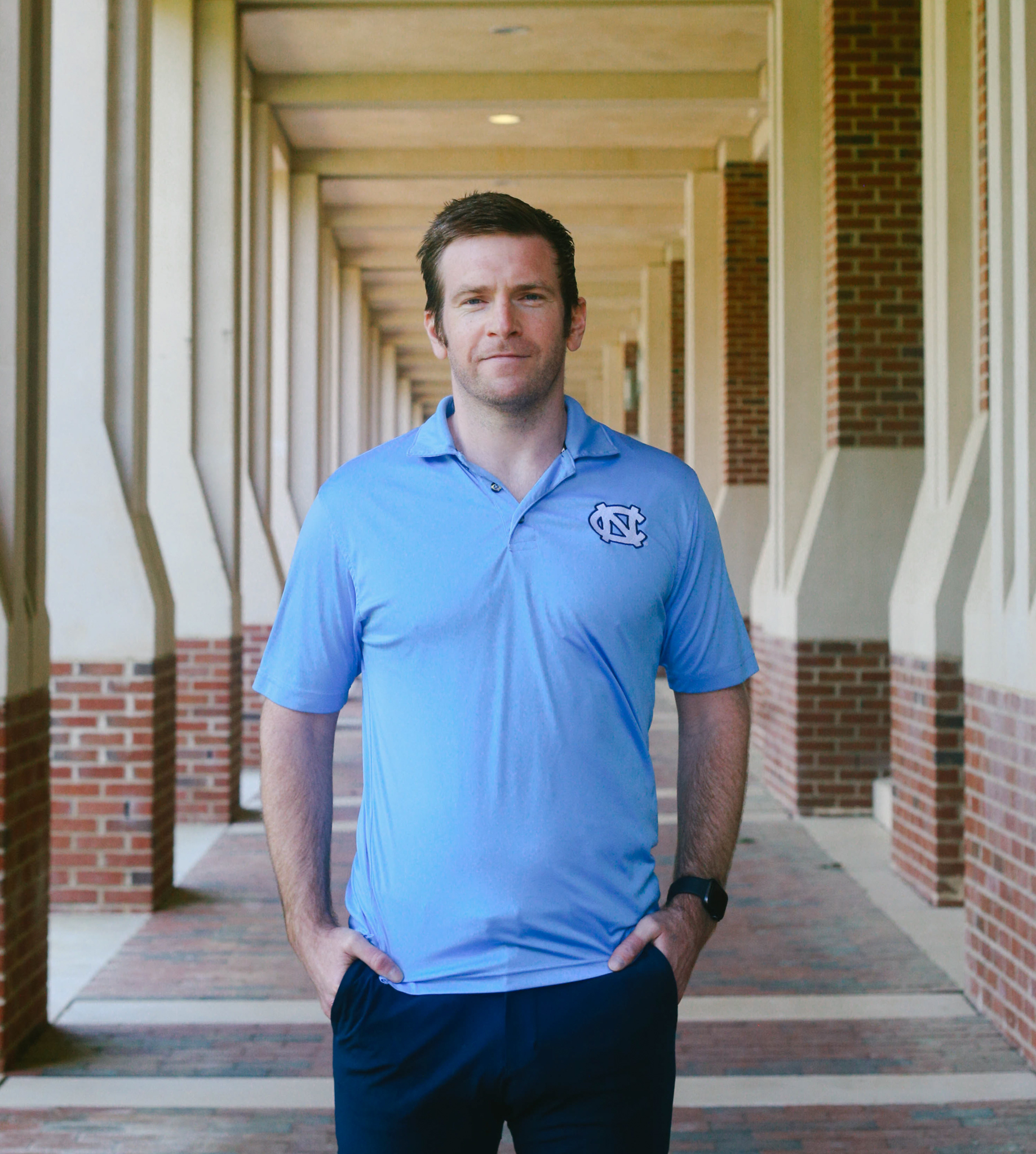August 9, 2023

Owen Fenton, Ph.D. received the National Institutes of Health (NIH) Trailblazer R21 Award. He will receive a total of $601,122 over three years for his project focused on developing new medicines to treat skin cancer that are safer and more effective than current therapies. This project will be conducted in collaboration with co-investigator Stergios Moschos, M.D., associate professor of medicine at the UNC School of Medicine.
“My group focuses broadly within the field of genetic medicine, with a particular focus on developing mRNA therapies for the treatment of disease. We are excited to receive this award which will enable us to develop better therapies for melanoma,” said Fenton.
Fenton is an assistant professor in the Division of Pharmacoengineering and Molecular Pharmaceutics at the UNC Eshelman School of Pharmacy. He received his Ph.D. from the Massachusetts Institute of Technology in 2016 and started as a tenure-track assistant professor at the School in February 2022.
The NIH Trailblazer R21 Award is an opportunity for new and early-stage investigators to pursue research programs at the interface of engineering and/or the physical sciences with the biomedical sciences.
Since beginning his tenure track, Fenton has received a total of $1,201,122 in grants. In addition to the NIH Trailblazer R21 Award, Fenton received a UNC Lineberger Tier 2 Stimulus Award as principal investigator for a two-year grant of $150,000 for a project titled “Novel Tumor Antigen-Specific RNA-Nanoparticle Vaccines in Reconstituted Immune Systems” with co-investigators Paul Armistead, M.D., Ph.D., associate professor of medicine, and Moschos from the UNC School of Medicine.
He also received the North Carolina Translational and Clinical Sciences Institute K12 Fellow Award, which is $300,000 over three years. Finally, he received a $150,000 award from BASF for a project titled “Lipid Formulations for Delivery to Plant Soil” as the sole principal investigator.
“Having these awards is rapidly enabling us to develop next-generation mRNA therapies and technologies. We are very excited to be able to perform this research here at Carolina and look forward to advancing our research from the bench top to the clinic,” said Fenton.
Hear more about Fenton’s work with mRNA therapies in this month’s UnSCRIPted interview.
Research reported in this publication was supported by the National Institute of Biomedical Imaging and Bioengineering of the National Institutes of Health under Award Number R21EB034942. The content is solely the responsibility of the authors and does not necessarily represent the official views of the National Institutes of Health.
Latest News

Dean Angela Kashuba receives Carolina Alumni Faculty Service Award

RASP poster presentations capture student research


